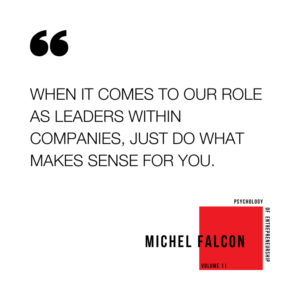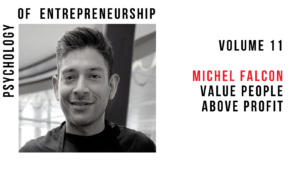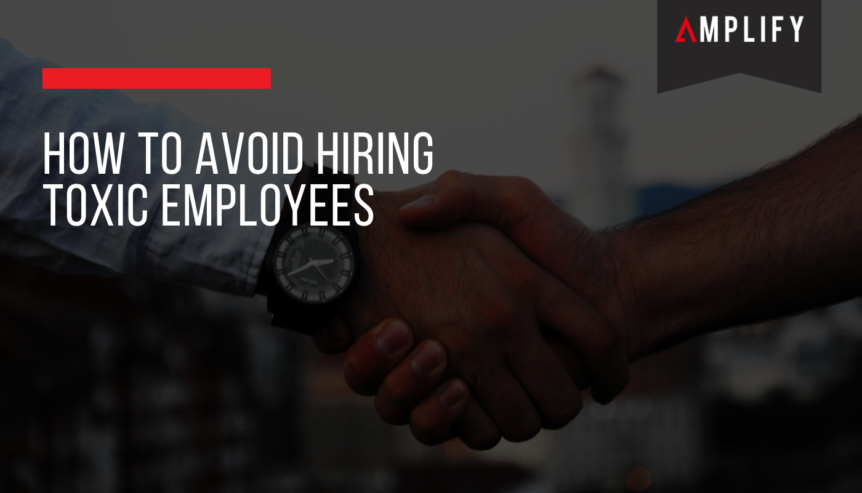For many entrepreneurs, creators and founders, as they grow they will come to a point where hiring an employee is necessary to lighten the workload – easier said than done, right?
The hiring barriers for many business owners nestles into two categories. Firstly, they don’t actually know how to bring all the hiring elements together, and secondly, there are the lingering phantoms of their past hiring experiences making hard to re-engage.
 I recently interviewed Michel Falcon for The Psychology of Entrepreneurship Podcast. Michel is a genius when it comes to hiring the right people for companies.
I recently interviewed Michel Falcon for The Psychology of Entrepreneurship Podcast. Michel is a genius when it comes to hiring the right people for companies.
As an entrepreneur, he uses customer experience and employee engagement strategies to grow his portfolio of restaurants and venues, which collectively has racked up over 150 team members.
To get to that point, over time he has developed a rigorous, six-step interview process that has certainly proven itself by achieving excellent hiring results.
So, in order to give you some guidance, here are the six steps to identify a candidate’s culture fit.
Understand the Kind of People you Want to Hire
Hiring and firing is never fun. It’s tiring, emotionally draining, and time-consuming not to mention costly. Before you even start sending out your feelers for new employees, take the time to think about the ideal candidate you want on board, that not only will work well within the company but also aligns with the overarching culture of your business.
The Phone Interview
Having an interview by phone is the best way to spot any red flags. So, open up your ears, as there are things that you should listen out for, like how they answer the phone or what they’re voicemail sounds like, whether they’re enthusiastic or can’t remember for the life of them who you are.
“If they can’t represent themselves well as an individual, what’s the likelihood that they’re going to be able to represent the brand well?” Michel explains.
Send a Predictive Index Assessment
The predictive index assessment is the second test in the interview gauntlet. This simple task that takes roughly seven minutes to complete, gets sent to the candidate immediately after the phone interview. Once they’ve finished, the system spits out a report that allows you to evaluate their eligibility for the position.
The Culture Interview
Considering they have passed the first two interview stages with flying colours, you can then start grilling them further in the culture interview.
“We’ll ask two questions per core value that we have, a sum of 10 questions and the only thing we’re thinking about is this person going to fit?” says Michel.
It’s not about the ‘I have done,’ it’s all about the ‘ I will’. His ‘no resumes allowed’ policy ensures that the interviewers are honing in on what the candidate can bring to the table that will impact the company’s future, not what they have achieved in the past.
Send an Assignment and Time the Response
Giving out an assignment isn’t something new to the hiring process, but it can tell you a lot about how someone feels about their career.
“Let’s say we’re hiring a marketer for a hospitality company. I’ll give them an assignment that takes them about four to eight hours to complete,” explains Michel.
He shoots it off to them about 2:00 pm on a Friday and informs the candidate to have it back to him by 10:00 am Monday. This pro tip will allow you to see who is willing to work over the weekend to advance their career. This stage isn’t for everyone, “50% of candidates will drop off at the assignment because they’re not willing to put in the work.”
Not every business needs weekend workers – but the industry hospitality certainly does. Michel admits it’s a contested point, but overall it can give you an idea of who is willing to put in the extra effort.
The Sign Off & Celebration
This final stage seals the deal. It’s fairly simple, you have two people signing off on each candidate, and then it’s time to hit the celebrate button – they made it through.
So, break out the disco ball and party hats, it’s time to celebrate, “One of our core values is celebration as an organization. If we’re going to celebrate our guests, we have to celebrate each other so that they know what it feels like,” says Michel.
Now, someone pass the dip!
Michel’s People-First Culture is a critical element to his success. It’s a philosophy where leaders put their employees and customers at the core of their decision making. So, basically, he’s an entrepreneur that puts people before both product and profit? – the mind reels.
So, taking the time and relevant steps to ensure the person who is about to become part of that culture is crucial.

The Psychology of Entrepreneurship
For more insight into Building, Company Cultures check out Volume 11 of the Psychology of Entrepreneurship podcast hosted by Ronsley Vaz and with special guest Michel Falcon.
Author: Ronsley Vaz
Ronsley is the founder & chief day dreamer at AMPLIFY. He is an author, speaker & serial entrepreneur.
He has a Masters’ degree in Software Engineering and an MBA in Psychology and Leadership. He is known as the creator of We Are Podcast – the first Podcasting Conference in the Southern Hemisphere, and the host of The Bond Appetit Podcast and Should I Start a Podcast. He has an audience of over 3 million in 133 countries.

